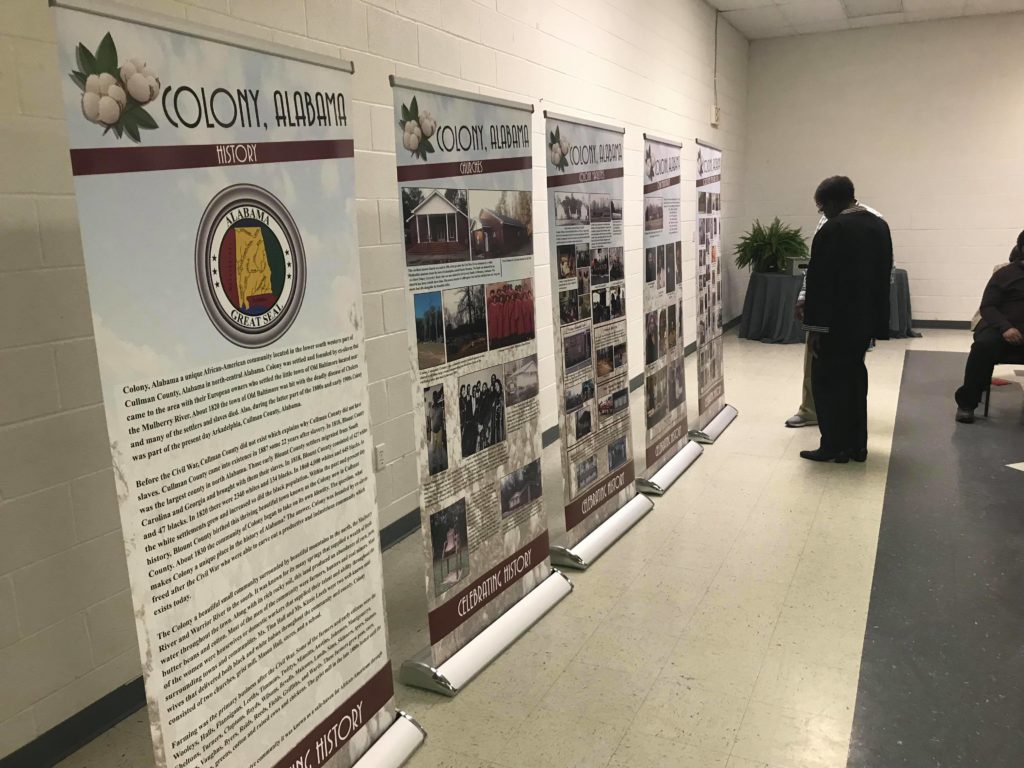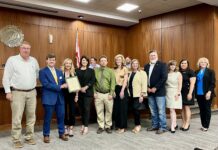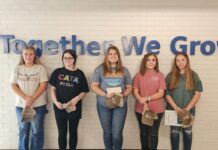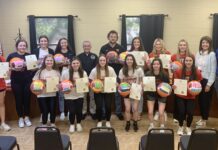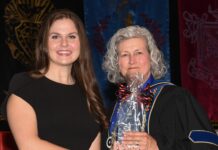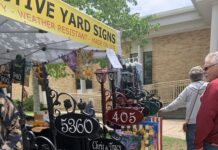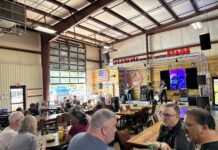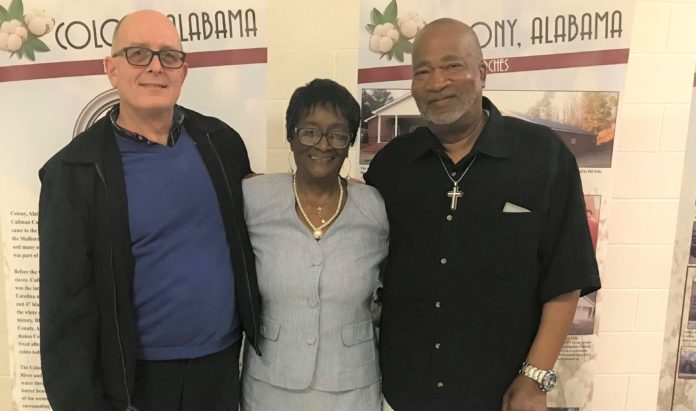
COLONY, Ala. – The Town of Colony held a special Alabama Bicentennial celebration Saturday, unveiling five murals depicting the community’s history, churches and people. In a ceremony held at the town’s Educational Complex, guests listened to songs and readings that gave insight into the history of Colony.
The moving ceremony looked back at the town’s origins. Founded by many former slaves, Colony became a place of safety and community.
Mary Turner read aloud the “Willie Lynch Letter,” a speech which historians say was given by Lynch on the bank of the James River in the colony of Virginia in 1712. Lynch was a British slave and plantation owner in the West Indies. The term “lynching” is said to be derived from his last name. The subject of the letter, said Turner, was “how to keep slaves enslaved for 300 years.”
Turner addressed the crowd, “I trust that as you listen and as you hear things about our history, you will understand and realize that we’ve come farther than that, we know better than that. The program is not designed to stir up anger, resentment, hatred or cause retaliation. We want you to see how our forefathers succeeded and made it against all the abuse that they suffered. We want you to know that no matter what problems you face, you can make it, too.”
The reading was followed by a history lesson from Ms. Letitia. She spoke of the injustices of slavery and how far society has come. She reminded everybody that not too long ago, African Americans were “branded and made to wear metal collars and unable to walk free.”
She smiled as she pointed to the diversity in the room, saying, “We’ve come a long way. We can sit here and we can converse and live together. We can share together.”
A brief history of Colony was presented by Jamelle Dimbo, who said the town was founded as a farming community. She explained that as industry in Cullman County grew, along with the acceptance of African Americans into the workforce, farming in Colony became a thing of the past.
Prior to integration, the Colony had its own school. The Colony Trojans began integrating into Hanceville schools in 1965. Since then, the town has made great strides to provide facilities and programs benefiting its citizens. A community center, ballfields, walking trails, splash pad, playground, and other improvements to recreation areas have been added.
A grant was awarded allowing the town to build a multi-use facility that houses the town’s library, Head Start, nursery and daycare, adult classes and after-school programs. All of these milestones, the leadership and churches who were instrumental in moving the town forward, the people and places are featured on the five murals unveiled Saturday evening.
Mayor Donnis Leeth introduced Cullman’s Alabama Bicentennial Committee Chairman Drew Green, who explained that the goal of the Alabama Bicentennial in Cullman is “to include the whole county.”
Leeth also praised Councilwoman Ethel Alexander for her hard work and dedication to the mural project, saying, “She did all of this. I told her to just do what you do best. This is ours.”
Alexander worked to secure a $2,500 grant for the project. The murals will travel to the Cullman County Museum and Montgomery before returning to their permanent home in Colony.
The grant money also included the production of two official Alabama Bicentennial commemorative postcards unique to Colony. One features Ms. Kizzie Montgomery Leeth and the other features a sketch by Linda Shaw Chavis of the town’s Educational Complex.
Copyright 2019 Humble Roots, LLC. All Rights Reserved.
